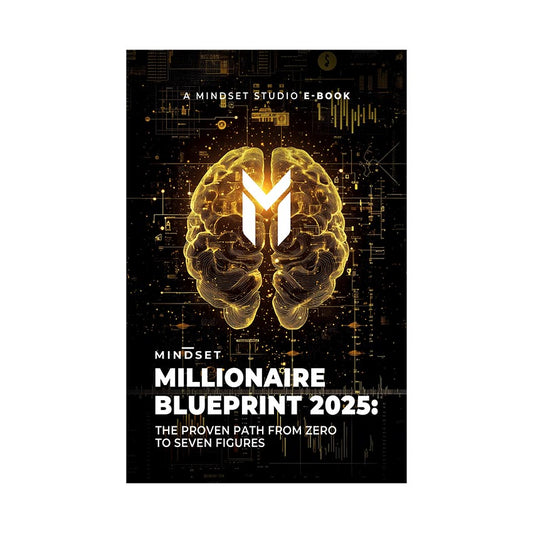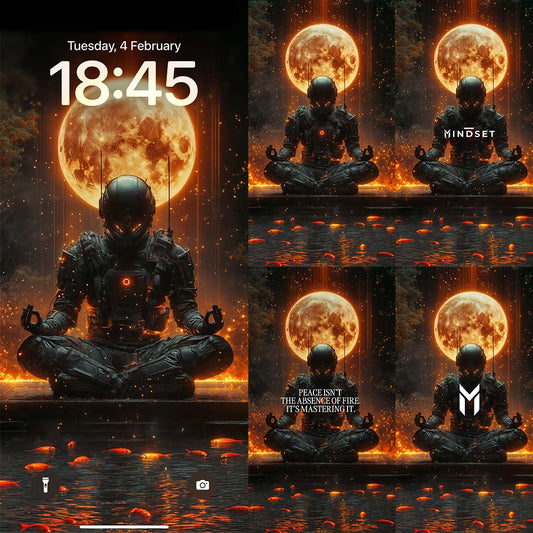
Share
How to Stop Trading Sleep for Productivity
Introduction: The Modern Productivity Trap
Have you ever pulled an all-nighter, convincing yourself that sacrificing sleep would get you ahead? You’re not alone. In today’s hustle culture, many believe that sleep is a luxury rather than a necessity. But what if we told you that better sleep could actually increase your productivity rather than hinder it?
In this post, we’ll break down The Energy Equation—a mindset shift that helps you maximize productivity without burning out. We’ll explore why sleep deprivation doesn’t actually make you more efficient, the science behind sleep and performance, and actionable steps to break free from the cycle of exhaustion.

Why Sleep Deprivation Is Not a Productivity Hack
1. Sleep Loss = Cognitive Decline
Many people believe that trading sleep for work means getting ahead, but research says otherwise. Studies show that sleep deprivation lowers cognitive function, reduces focus, and impairs decision-making—all of which directly impact productivity.
- Sleep-deprived individuals perform as poorly as those with a blood alcohol level of 0.10% (well above the legal driving limit!).
- Lack of sleep affects your brain’s prefrontal cortex, which is responsible for problem-solving and creativity.
Bottom line: Less sleep doesn’t mean more work—it means more mistakes.
2. Burnout Kills Long-Term Success
Burnout isn’t just about being tired. It’s a physiological and psychological state of chronic stress that leads to decreased motivation, lack of creativity, and even serious health issues like heart disease and weakened immunity.
- Signs of burnout: Constant exhaustion, reduced performance, brain fog, and lack of enthusiasm for tasks you once enjoyed.
- Long-term consequences: Chronic sleep deprivation has been linked to memory loss, mood disorders, and even a shorter lifespan.
You wouldn’t let your phone run on 1% battery all day—so why do the same to yourself?
3. The Productivity Paradox
The law of diminishing returns applies to your work ethic, too. After a certain point, pushing yourself harder doesn’t mean getting more done—it means spinning your wheels inefficiently.
- Research from the Harvard Business Review found that workers who log 80+ hours per week are no more productive than those who work 50-60 hours—but they experience significantly more stress and errors.
- Companies like Microsoft Japan saw a 40% increase in productivity when reducing work hours—proving that strategic rest leads to better results.
💡 Work smarter, not longer.

The Energy Equation: How to Work at Your Best
If sleep deprivation isn’t the answer, then what is? The key to high performance lies in The Energy Equation, which balances three core components:
1. Sleep as Your Foundation
High achievers like Jeff Bezos and Arianna Huffington swear by at least 7-9 hours of sleep—and for good reason.
Here’s why prioritizing sleep fuels peak performance:
✅ Improves memory retention and learning.
✅ Enhances creativity and problem-solving.
✅ Boosts focus, speed, and efficiency.
Action Step:
- Set a non-negotiable bedtime and wake-up time (yes, even on weekends!).
- Invest in sleep quality: blackout curtains, a comfortable mattress, and zero screens 30-60 minutes before bed.
2. Strategic Rest & Recovery
You don’t have to be constantly working to be productive. Breaks help you reset and return stronger.
✅ Use the Pomodoro Technique (25 min work, 5 min break).
✅ Try Non-Sleep Deep Rest (NSDR)—a quick, meditative state that enhances energy and focus.
✅ Step away from work every 90-120 minutes to prevent mental fatigue.
Action Step: Schedule "energy breaks" into your day. Rest isn’t wasted time—it’s a power boost.
3. Smart Energy Management
Instead of grinding through exhaustion, align tasks with your natural energy levels:
- Mornings (High Energy): Do deep work (problem-solving, strategy).
- Afternoons (Medium Energy): Meetings, brainstorming.
- Evenings (Low Energy): Admin tasks, planning for tomorrow.
Action Step: Identify your biological prime time (when you feel most alert) and schedule your hardest tasks accordingly.

Practical Steps to Break the Sleep-Work Cycle
Want to stop trading sleep for productivity? Start here:
🔹 Create a nighttime routine (wind down with reading, meditation, or journaling).
🔹 Stop glorifying “hustle” culture—success comes from sustainable habits.
🔹 Leverage technology: Use apps like Sleep Cycle or Rise Science to track and optimize sleep.
🔹 Fuel your body right: Cut caffeine after 2 PM and avoid heavy meals before bed.
🔹 Set clear work boundaries: Close your laptop and unplug at a set time each day.
🚀 Remember: Your best work doesn’t come from exhaustion—it comes from consistent, high-energy performance.
Final Thoughts: The Power of Rested Productivity
If you want to achieve more while doing less, you need to stop treating sleep like an obstacle to success. The most productive people in the world prioritize rest, knowing that better energy = better results.
✅ Sleep is your secret weapon.
✅ Rest fuels long-term performance.
✅ Productivity isn’t about working more—it’s about working smarter.
Now, take action: Start by making one small sleep change today—whether that’s setting a bedtime, taking regular breaks, or tracking your sleep patterns. Your future self will thank you.




